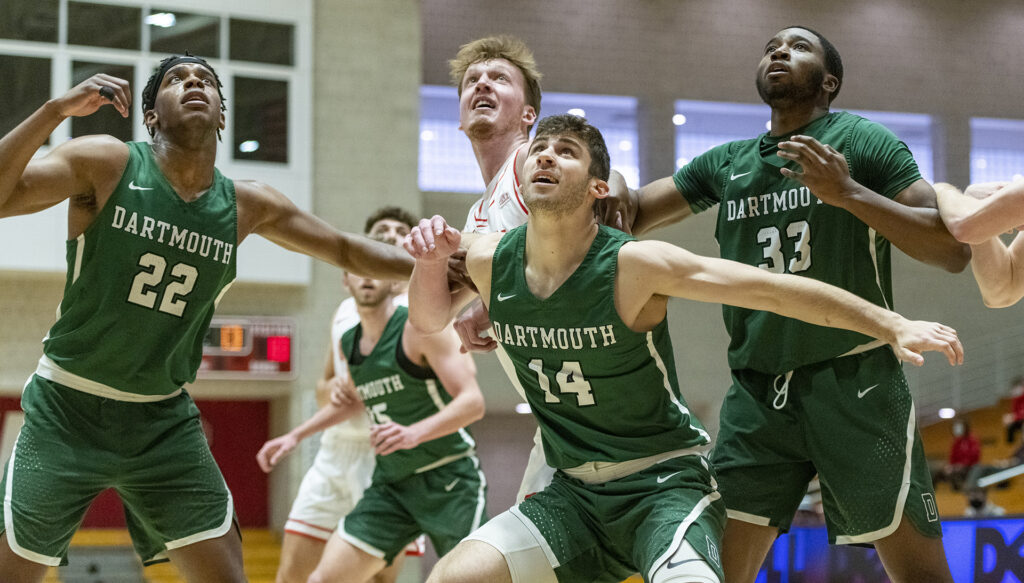
In a groundbreaking decision, the National Labor Relations Board (NLRB) declared on Monday, February 5 that members of the Dartmouth men’s basketball program are classified as “employees” by the National Labor Relations Act (NLRA). The NLRB Region 1 held that these athletes perform work under Dartmouth’s direction in exchange for compensation.
This landmark ruling has eliminated the decades-old designation “student athlete” and replaced it with “student employee”—at least at Dartmouth. As newly established employees who do not receive athletic scholarships, the players will from now on be able to engage in negotiations with the College over salaries, working conditions, and benefits.
A September petition from the Dartmouth basketball team to join the Service Employees International Union is what prompted initial review by the NLRB, whose February 5 decision promises far-reaching implications for the unionization of college athletes, especially those in the Ivy League.
The decision marks a shift in legal understanding of student athletes from being participants in extracurricular activities to being recognized employees of their institutions. By meeting the common-law test of employment—performing work in exchange for compensation and being subject to an employer’s control—the Dartmouth basketball players have been granted the right to unionize. The February 5 decision aligns with the NLRB’s broader stance, as indicated in a 2021 memo asserting that student athletes provide services to their schools akin to those provided by employees. Thus the broader implication from the Dartmouth decision is that unionization shall almost certainly grow beyond the basketball team and extend to other sports.
Unlike most other Division I schools in the United States, the Ivy League does not give athletic scholarships. This means that the only institutional aid that student athletes within the League receive is based solely on their demonstrated financial need. This absence of athletic (or merit) aid is a distinguishing feature to the Ivies that is typically ascribed to their across-the-board prioritization of academic achievement and estimable personal characteristics.
Further, the commonality among the eight schools in sharing this feature may be said to present a more even playing field, in that no one institution is in a position to offer substantially larger or more attractive scholarship packages to particular applicants.
The NLRB’s ruling undoubtedly represents a significant victory for the Dartmouth basketball team, but it is only the beginning of a greater legal battle to come. Dartmouth has already announced its intent to appeal the decision, which could prolong final judgment for a number of years. Dartmouth’s appeals could potentially find their way to the U.S. Court of Appeals and even the Supreme Court. In the meantime, the scheduled union election at Dartmouth is set to move forward.
The results of the decision certainly extend far beyond Dartmouth’s campus, and they shall have a ripple effect throughout collegiate sports. With the potential for union representation, student athletes gain a platform to advocate the implementation of a salary and to improve their terms and conditions of employment.
The recent formation of the Ivy League Players Association by Dartmouth basketball representatives signals a movement toward collective action and solidarity among college athletes, which could pose a financial threat to Dartmouth, the other Ivies, and schools across the country. Indeed, this unionization effort could inspire athletes from different sports at Dartmouth and other institutions to follow suit, critically reshaping the power dynamics between student athletes and the institutions which they attend.
Despite the NLRB’s ruling, resistance to the classification of student athletes as employees persists. The NCAA and universities have long maintained that athletes are students first, pushing back against efforts to classify them as employees entitled to a formal salary and collective bargaining rights. College sports leaders have lobbied Congress and fought legal battles to preserve the amateur status of athletes. However, the increasing number of lawsuits challenging the NCAA’s authority suggests change could be possible, even imminent, for the organization.
There are plenty of places on campus at which Dartmouth students can work. Foco, Novack, the Alumni Gym, and other places on campus afford copious amounts of opportunity for students to make money on campus. But student athletes may be at a disadvantage. Due to the time they spend competing and training for their respective sports, as well as their academic obligations, they may have no time to work and make money in the traditional ways.
A good argument can be made that student athletes provide a service to the College, just as other student workers do, and they should thus be compensated for it. This is to say, there is valid reasoning for student athletes to be compensated.
However, the path to compensation for student athletes is dicy. As previously stated, the Ivy League is traditionally opposed to athletic scholarships, and then there are the potential threats that a union would pose on the College. Although students and groups on campus, such as the UGAs, for example, have tried to unionize, these attempts have never materialized or come to fruition. Regardless, the momentum behind the Dartmouth basketball team’s efforts to unionize is undeniable.
As the legal landscape of college athletics changes in the next few months and years, institutions of higher education will face pressure to adapt and comply with these changes. The NLRB’s decision has created a path for negotiating compensation and working conditions to address broader issues within collegiate sports.
While the path forward remains uncertain, one thing is clear: the era of amateurism in college athletics is falling by the wayside. The NLRB’s ruling in the case marks a critical moment in the history of collegiate sports. By recognizing student athletes as employees with the right to unionize, the decision has the potential to usher in a new era of empowerment and advocacy for college athletes nationwide.

Be the first to comment on "NLRB Decision Spells Unionization at Dartmouth, Broader Ivy League"